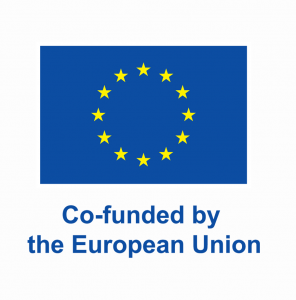Twelve media newsrooms from Europe have been selected for an in-depth business support, following a transparent and multi-staged evaluation process.
The call was targeted towards mid-sized, regional or local media and niche outlets, with a clearly identified problem they are willing to solve. Selected media will receive customised mentoring and grant support as part of the Deep-Dive Business Consultancy (DDBC) pillar, under the Media Innovation Europe (MIE). The overall goal is to level up the business capacities of media outlets that need strategic guidance and technical assistance in order to set their path toward business viability.
In addition to this, Thomson Media will provide grant funding to support activities related to the implementation of new products, services and/or newly developed strategies.
International Evaluation Jury, consisting of three media professionals – Anna Vissens, Jernej Verbič, and Christoph Lanz, conducted an quality assessment of media outlets that applied and recommended the following for support:
1. KumanovoNews, North Macedonia – a small outlet based in the northeastern town of Kumanovo that is slowly, but steadily, growing into a regional news leader.
2. RTV Nikšić, Montenegro – a public service media founded in 1995, as the first local TV station in Montenegro. Today, it is one of the most important sources of information for the local community of the second largest city in Montenegro, Nikšić.
3. Nyugat, Hungary – founded in 1999, this award-winning media outlet has maintained its integrity and credibility, delivering news to readers living outside of Budapest, as well as those with low-representation.
4. The Shift News, Malta – born following the assassination of Maltese journalist Daphne Caruana Galizia, The Shift is a community-funded online news portal based in Malta dedicated to investigative journalism and the defence of press freedom.
5. RTV Teuta, Montenegro – Ulcinj-based media that produces program bilingually, in Albanian and Montenegrin. Thanks to its multiplatform approach, together with the newly introduced website and app, RTV Teuta marks constant audience increase on all digital platforms.
6. Kosovo 2.0, Kosovo – established in 2010 as Kosovo’s very first blogging platform, K2.0 expanded and established itself as a critical and credible journalistic voice, committing to explanatory, contextual and narrative journalism. They publish their content in English, Albanian and BCSM languages.
7. TV Tema, Kosovo – a private local media outlet first established in 2000 as a radio station, and from 2005 is licensed as a television station covering 10 municipalities in Kosovo with approximately 700,000 residents. They are considered as a flagship local media in Kosovo when it comes to digital production and distribution.
8. Vidi Vaka, North Macedonia – established as a foundation five years ago, Vidi Vaka create stories that give voice to the voiceless, create social change and confront social issues. They are winners of multiple awards for their storytelling.
9. RTV Slon, Bosnia and Herzegovina – a private, commercial media company from Tuzla that has been in operation for 25 years. They broadcast the program and content on TV, radio, and online – having their own website, YouTube channel, and social media pages.
10. Nova ekonomija, Serbia – a private media outlet providing news, analysis, and commentary on economic topics in Serbia. Since its inception in 2013, it has branched out to cover wider societal and ecological issues.
11. IRCA, Albania – a non-profit organization, established by a group of young Roma in 2011 with the goal of advocating for equality for Roma people. In 2015, IRCA establishes “Capitol” radio to provide further visibility to its organisation.
12. Romea, Czech Republic – founded in 2002 and dedicated to reporting primarily on Roma issues, human rights, politics and education, not only in Czech Republish, but in Europe as well. They publish their content on multiple platforms.
We congratulate all the media outlets selected for the programme and look forward to seeing their results.
Media Innovation Europe (MIE) is a two-year programme funded by the European Commission aiming to provide European newsrooms with time and space and access to expertise to help them more deeply understand the challenges they face, reach new consumers and find pathways to financial sustainability.
The project is delivered by a consortium led by the Vienna-based International Press Institute (IPI) together with the Berlin-based Thomson Media (TM), the Kyiv-based Media Development Foundation (MDF) and the Sarajevo-based Balkan Investigative Reporting Network (BIRN).

